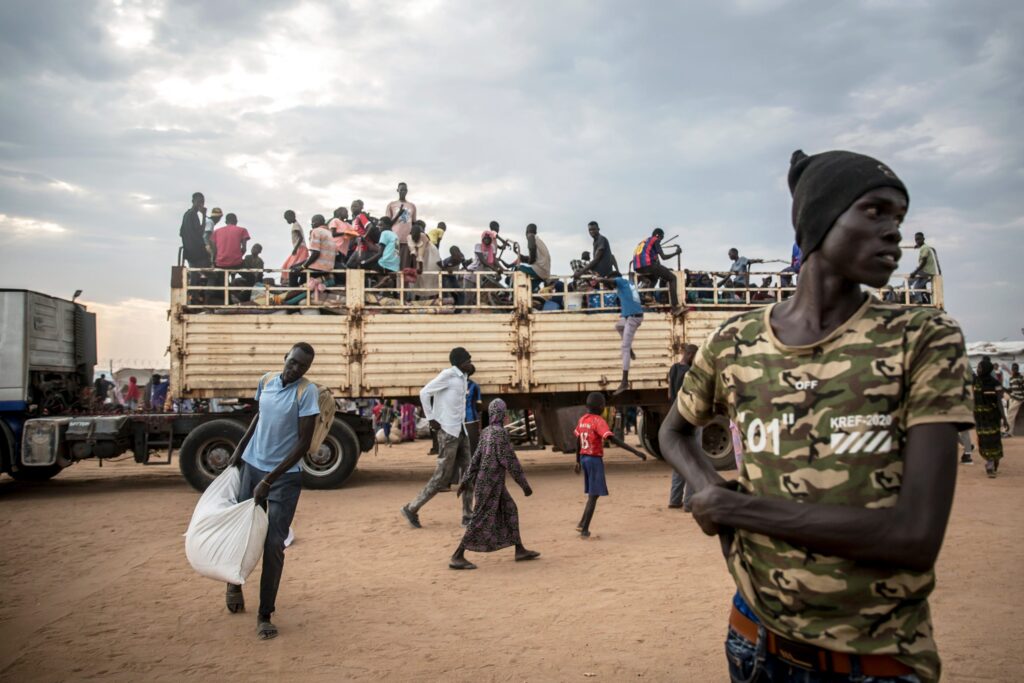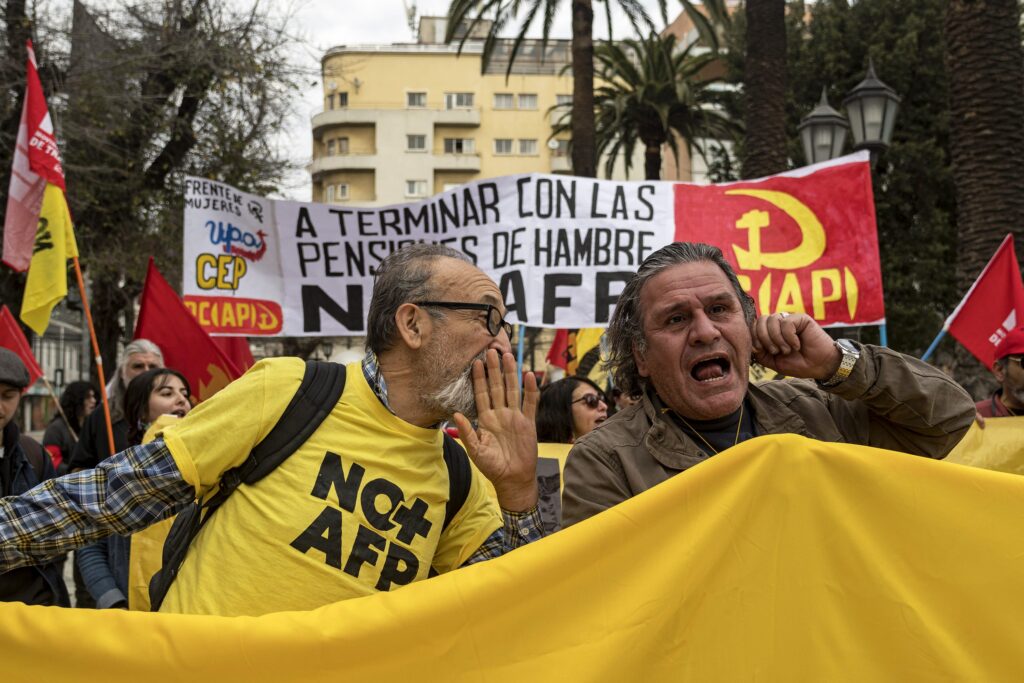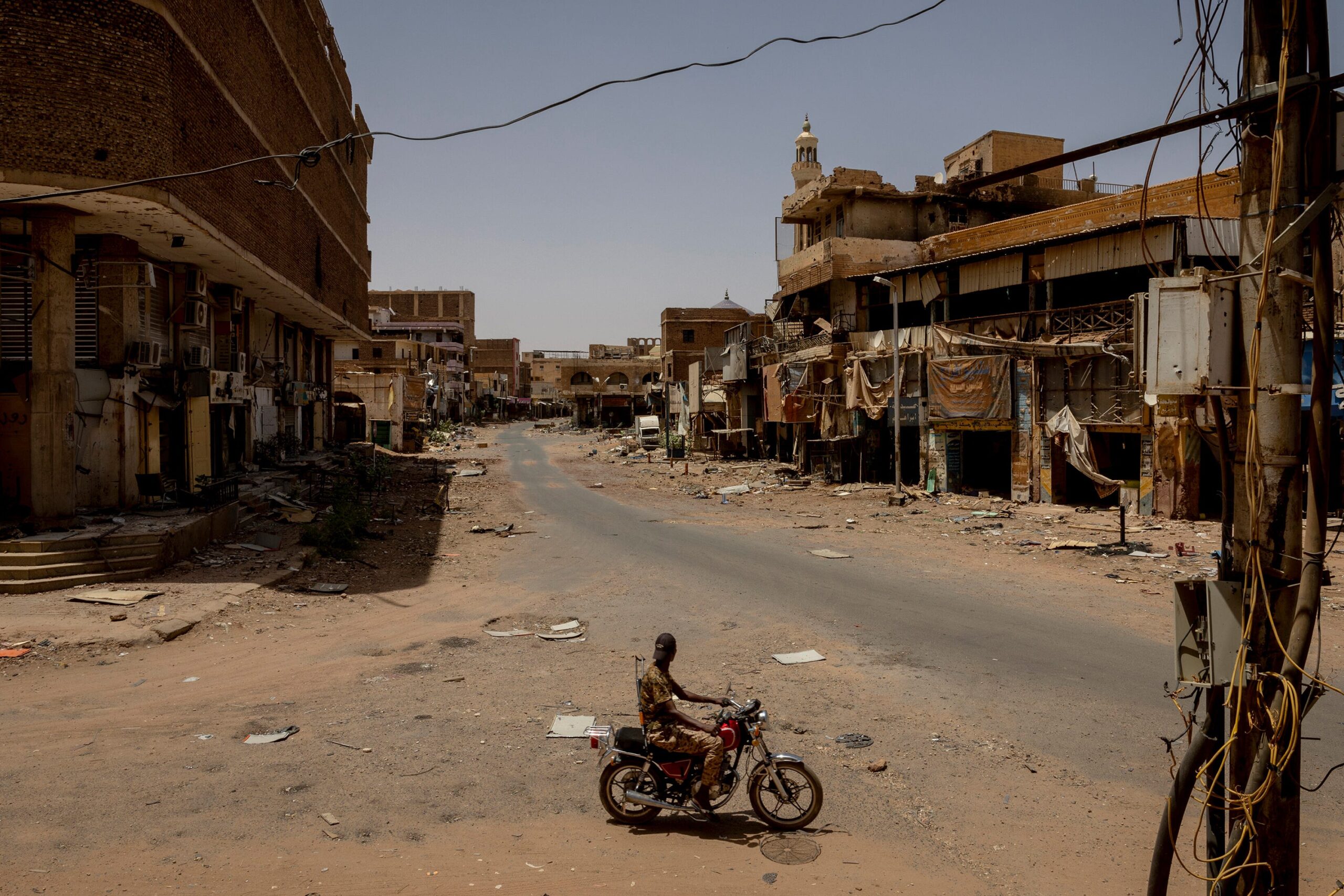Nesrine Malik, a columnist for The Guardian, has penned for The Ideas Letter a piece at once disturbing, powerful, and educative. Why has the Save Darfur movement, once a leading voice of advocacy in the West, been silent about the catastrophe enveloping Sudan today? What happened to the insistent pledge “never again”?
We follow with an absorbing political story from Giorgio Jackson, one of Chilean President Gabriel Boric’s closest advisers, on the politics of pension reform there: It’s a showdown between today’s young social democrats and a Chicago School–inflected old guard.
In our curated content, we feature Musa al-Gharbi, who through a razor-sharp sociological lens grapples with the world of the new social class of “symbolic capitalists,” which he unpacks, reconceptualizes, yet never maligns. (For more al-Gharbi, keep your eyes peeled for his forthcoming book, We Have Never Been Woke: The Cultural Contradictions of a New Elite, which will drop in October.)
Moving from society to culture: In an instructive piece, David Wengrow upends countless assumptions about demography in the ancient world to counter common understandings about relations between people and power then—in the East and the West—a subject that he and the late David Graeber studied together. If bromides galore have been written about the degradation of humanity in the face of AI, Shannon Vallor has something to say about it that is bromide-free, and courageous and new. Finally, an essay by Mijin Cha that tears open the conceits and contradictions around that overused term “just transition.”
Our musical selection for this issue, our 21st, is from Philadelphia-born Ray Bryant’s lyrical and plaintive jazz piano. Here Bryant plays the beguiling standard “Angel Eyes” with a mid-50s trio.
—Leonard Benardo, senior vice president at the Open Society Foundations
Sudan and the Silence of the Activists

Nesrine Malik
The Ideas Letter
Essay
Two decades ago, conflict in Sudan’s Darfur region metastasized into ethnic cleansing after Arab militias, known as the Janjaweed, joined the central government to quell a rebellion of African groups protesting economic and political marginalization. In the long shadow of mass killings in Yugoslavia and Rwanda, the atrocities in Darfur sparked international outrage and a concerted, high-profile antigenocide campaign. Sudan is currently involved in another conflict, which features looting, rape, ethnic cleansing in the west and refugees in the east. But even as the specter of genocide looms over Darfur again, global attention is sorely lacking, decries Malik. The reasons for this include a much-changed international context, particularly in the United States.
But also, she argues:
“… the situation in Sudan today tests activists’ reliance on a simple story—the kind of story that pits a singularly powerful bad perpetrator against a weak, helpless victim. … If the crime scene is in Africa, framing the events in binaries is even more important—so hard is it to draw in outsiders accustomed to narratives of disaster and inured by years of various civil wars and famine. Some of that is about human nature. But some of it is about the sadly high hurdle that conflicts in the non-Western world have to scale in order to be deemed worthy of attention. It is not enough that there is suffering. That suffering must also pass the narrative test—ideally by playing into tropes about ethnic supremacism or religiously fundamentalist warlords. … The Sudanese are now failing that test, badly. This story is so complicated that outsiders can gain no purchase on it in a way that evocatively pricks saviors’ impulses or sparks outrage against a Biblical Goliath.”
Chile’s Debt to Its Elders

Giorgio Jackson
The Ideas Letter
Essay
Chile’s pension systems have for decades been tied to broader political disputes. The country’s vaunted privatized model, introduced by the so-called Chicago Boys economists under the Pinochet dictatorship, became the focal point of the 2019 social outburst that demanded a better social security net for Chileans. But President Gabriel Boric’s subsequent reform efforts have been bogged down by political infighting, writes Jackson, who previously served as the Boric administration’s minister of social development. Boric’s reform seeks to balance individual savings with increased social security contributions, reflecting a historical struggle between the Chicago Boys’ privatized pension model and solidarity-based alternatives and synthesizing the mixed messages voters have expressed in recent years.
“The grand objective of social security is solidarity between generations, between genders, and between classes. Without social security these ideals would be impossible to realize; the opposition responds that solidarity should only be provided through general taxes, which is unfeasible. The problem lies in the fact that this solution is much more expensive to implement, not to mention that, for more than a year and a half, the opposition has also opposed any progressive increase in taxes.”
The Symbolic Professions Are Super WEIRD
Musa al-Gharbi
Symbolic Capital(ism)
Article
Professions centered on the production and manipulation of symbols, such as media, academia, and consultancy, often portray themselves as champions of social justice, but they actually perpetuate and benefit from systemic inequalities. Al-Gharbi argues that the increased focus on social justice in the discourse among these WEIRD (Western, Educated, Industrial, Rich and Democratic) elites has not led to significant social improvements and has instead solidified their own power and status within society.
“Many symbolic capitalists worldwide feel more kinship and comfort with peers from other societies than with ‘normies’ born and raised in their home countries (whom they openly disdain and disparage with regularity). In turn, ‘normies’ have been growing increasingly alienated from symbolic capitalists and the institutions they dominate. More and more, polarization across and within countries turns on constituents’ sociological proximity or distance with respect to the symbolic professions. Finding a way to bridge these growing divides is one of the core sociopolitical challenges of our times—perhaps a prerequisite for effectively addressing many other pressing social issues.”
Beyond Kingdoms and Empires
David Wengrow
Aeon
Essay
Recent archaeological discoveries are challenging long-held beliefs about the dominance of empires and the nature of human freedom by debunking flimsily sourced statistics. Evidence uncovered in recent decades shows that vast regions and significant populations historically existed outside imperial control and lived, not in hierarchical states or under exploitative elites, but in sophisticated autonomous societies.
“In the near future, intellectual historians may puzzle over how, a half-century after its publication, such a dismal source as the Atlas [The Atlas of World Population History] became the sole basis for a demographics of doom. How, on such feeble foundations, did we pump into our heads the notion that there is something natural about living in societies where rulers exercise arbitrary authority over subjects? Or where dissent is likely to be met with brutality, imprisonment, exile or even death; and where the only alternative is something like the ‘liberty’ of Gibbon’s ancient Germans: a life of freedom, but also of poverty, ignorance and general immiseration.”
The AI Mirror
Shannon Vallor
New Books Network
Podcast
The most immediate and concerning threat posed by artificial intelligence is not that it will dominate us, but that its potential to imitate human thought processes without truly understanding them could push us to relinquish critical thinking and reasoning. Vallor critically explores the perspectives of AI doomers and long-termism, the relationship between AI and human intelligence, and how the technology industry is distracting us from the real dangers we face.
“There is an existential risk, it’s not existential in the sense of human extermination, existential in the philosophical sense. Of something that threatens human meaning, that threatens human agency and the openness of the future. If you think about existentialism as a philosophy, which focuses on human freedom, which focuses on the open horizon of human potential, which is the corollary of that freedom, and which also focuses on human responsibility and the ultimate inability to excuse our actions as caused by forces outside of our control. These are the themes of the book. The kind of AI narrative that we are being fed right now is, unfortunately, undermining our awareness of our existential responsibility, is undermining our understanding of ourselves and is undermining our understanding of the openness of the future. You get a lot of narratives that we call techno-deterministic, which suggests that the future for us is already decided by the arc of technological innovation.”
What Is a Just Transition?
Mijin Cha
The Break Down
Essay
The concept of a “just transition,” which would mitigate the social and economic consequences of decarbonization aimed at addressing the climate crisis, has become mainstream, even as it has been stripped of meaning. Indeed, the two main considerations it references—that there be a transition from fossil fuels and that this shift not cause new injustices—are rarely grappled with seriously, writes Mijin Cha.
“Understandings of what makes any transition ‘just’ vary. Does ‘just’ simply describe the integration of various strands of justice, such as a community engagement process that is accessible to all (procedural justice)? Or does it ask which communities are exposed to disproportionate pollution burden and which are protected from pollution (distributional justice)? Does ‘just’ mean ensuring that the individuals shaping transition efforts are those directly impacted? Is ‘just’ focused at the level of the power plant, the community, the regional, or global level? Critically, alongside the tangible questions about what makes a transition just is the equally vital question of who decides what is ‘just.’”
